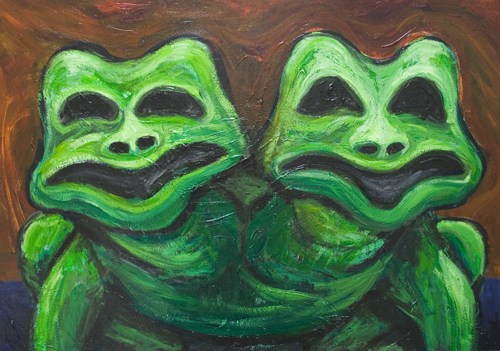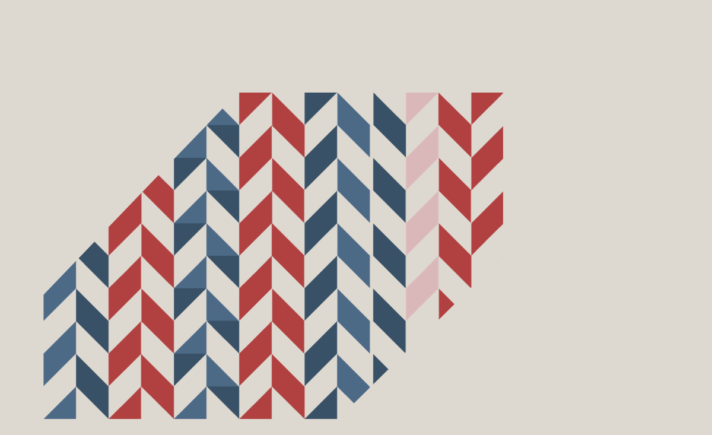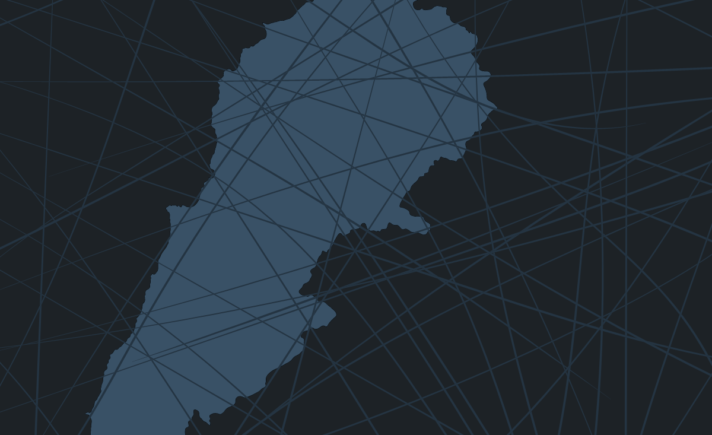To be able to begin a new journey in our adopted country was a gift that granted me and my family security, away from war-wracked Syria. We arrived at the shores of safety thanks to the French government, represented by its embassy in Jordan. This came just days after the terrorist attacks that devastated France in November 2015. My heart went out to the families of the victims; I also feared the prospect of a similar attack taking place and threatening my own family.
This paradox, of seeking asylum in a country that saved my life but was suffering and in danger itself, actually increased my anxieties, and turned everyday tasks into a challenge. I had to fight to not surrender to its evil net that triggered claustrophobic fears inside of me.
As someone who was met with a welcoming attitude by our French host community, I cannot but be grateful for this country. However, it is hard for me to ignore the atmosphere of mistrust lingering in the air at certain times, for example when I’m asked whether I eat pork and drink wine. My vegetarianism apparently meant to some that I must be a devout Muslim posing disingenuously as an animal lover. This was unhelpful, but I would “pass the test” after a glass of wine (though, sadly, some people would take it upon themselves to snatch the glass out my hand, shouting that it contained alcohol; if I was lucky, I’d have time for a sip or two before my saviors rescued me). I was unfamiliar with certain cultural codes in France pertaining to immigration and demography, ones which generate certain stereotypes, particularly in light of the “War on Terror.” In consequence, I realized only later that being a Syrian refugee meant being associated with labels such as “conservative,” “misogynist,” and “homophobic.” Over time, the questions of the headscarf, alcohol, and pork became hot topics that I found myself obliged to discuss and feel apologetic about. Being framed by these stereotypes, which circulate within our hosting community, traps us in a defensive position in which we’re compelled to justify our identity and our simple choices in life.
This atmosphere of fear of “the Other” results partly from the unjust discourse that has politicized a humanitarian case, distorting and manipulating the suffering of people who want no more than to escape the death toll of a dictatorial regime. After an initial phase in which refugees—especially the wave of Syrian asylum seekers in 2014—were depicted as helpless victims, in a context of an endless war with no single party clearly responsible for their flight, there then came a new era, when the media turned them into demons. They/we were represented as exotic, violent, and hostile; talked about as a group of fixed cultural heritage unable to change and refusing to integrate. Reports spread in the news about their/our sexual violence, and aggression and ingratitude towards host communities.
Within these two poles of representation (or misrepresentation), Syrian refugees were transferred into the Other. They became the scapegoats of disappointed local communities bearing the brunt of inequitable neoliberal economic policies. Anguished by domestic terror attacks, local communities grew suspicious of the new arrivals who had themselves fled to escape the very same kind of violence. On top of this lay the integration question, always a salient one in countries that don’t shy from confronting any challenges in their multicultural communities.
Writing my thesis in 2014 about post-9/11 cultural identity formation and the effects of internalization and resistance on Arabs and Muslims within the multicultural society of the United States, I never imagined I would find myself forced to pose similar questions as a Syrian refugee in France. My questions were about the role of the intellectual facing the morbid results of representation discourse on individuals based on their ethnicity, religion, and race.
The late Stuart Hall, a British sociologist and one of the founders of cultural studies, showed that black Britons formed a collective cultural identity after being excluded from the British one. This identity revived blacks’ hidden history and asserted their humanity; a political statement standing against their marginalization. Yet Hall asserted that it was essential, while resisting the discourse of representation, not to surrender to the counter-image of black subject innocence, but rather to be aware of the diversity within the black community.
Consequently, Hall argued—based on Edward Said’s concept of the self and the other—that black people were constructed as “the other,” and that in consequence black people started to actually see themselves as “the other.” Hall wrote that this was formed by “the fatal couplet” of “power/knowledge.” “It is one thing to position a subject or set of peoples as the Other of a dominant discourse,” he wrote; it was “quite another thing” to get that subject to acquiesce in its “Other” status and internalize the subjugation and “con-formation to the norm.” Blacks’ struggle, as expounded by Hall, is a model for the study of other minorities facing racist attitudes in today’s multicultural societies.
Applying this black resistance model to modern multicultural society underscores the importance of refusing to internalize the discourse that dehumanizes asylum seekers, grouping them in one category of rigid cultural backgrounds hostile to the host community’s values. The integration of Syrian refugees is complicated by the hate speech that often circulates in the media. At the same time, and partially as a result of this, self-hatred and fear of one’s own culture are found among refugees themselves, as a means of rejecting stigma by denying any connection to their culture of origin. Some Syrians speak of their culture as backward. Eager to assert their conformity with their host community by any means, they mimic its culture without being able to achieve the depth of understanding it. I have seen Syrians denouncing their fellow compatriots as lazy and ill-educated for the minor lapse that reflects their delay in integration, from their point of view. Thus do they project the stigma of ignorance, reflected in the aggressive media discourse against them, on their counterparts. Others have started to internalize the stereotypes depicting them as illegal immigrants whose goal is to live off social aid, to the point of organizing groups to attack and shame the beggars who beg in the name of Syrians. In other cases people have come to feel isolated, trapped in a mistrust bubble that prevents them from communicating with their adopted countries.
As someone who respects and appreciates my host community’s diversity, I resist the discourse of the media and its aggressive xenophobic attacks which harm my mental health. I see my people learning, in their diaspora, how to compensate for years of imprisonment within the confining propaganda jails of a dictatorship that aimed to manipulate our education. I see how they try to learn from their host communities and offer their innovation and sincerity. Syrians’ diaspora is a journey towards achieving maturity after years of struggling against a ferocious and vicious regime, whose policy was to strip them of their source of power, which is knowledge. The Syrian revolution itself was a cry against this policy of obscurantism.
I find myself obliged to write about the damaging effects of discourse that represents refugees as a group of outsiders threatening their host communities’ security, hoping my words might reach those interested in the question of media representation. Since I refuse to be the voiceless Other, I feel the need to challenge the stereotypes and hate speech that prevent healthy relations between us and our host communities. At the same time, it is important to resist the counter-image of innocence that denies its subjects’ agency and free will. I appreciate the humanitarians who extend a hand to those in need. To ensure a mutual relationship of trust, there is a need to stand against any poisonous discourse which represents any group of humans as an unwanted Other. Appreciating multicultural society’s diversity is one of the highest values I’ve come to experience in my adopted country. Hence I celebrate the beauty that comes with our heritage, and which will add to the gardens of multicultural society, where the uniqueness of every individual is a precious gift to be guarded.





